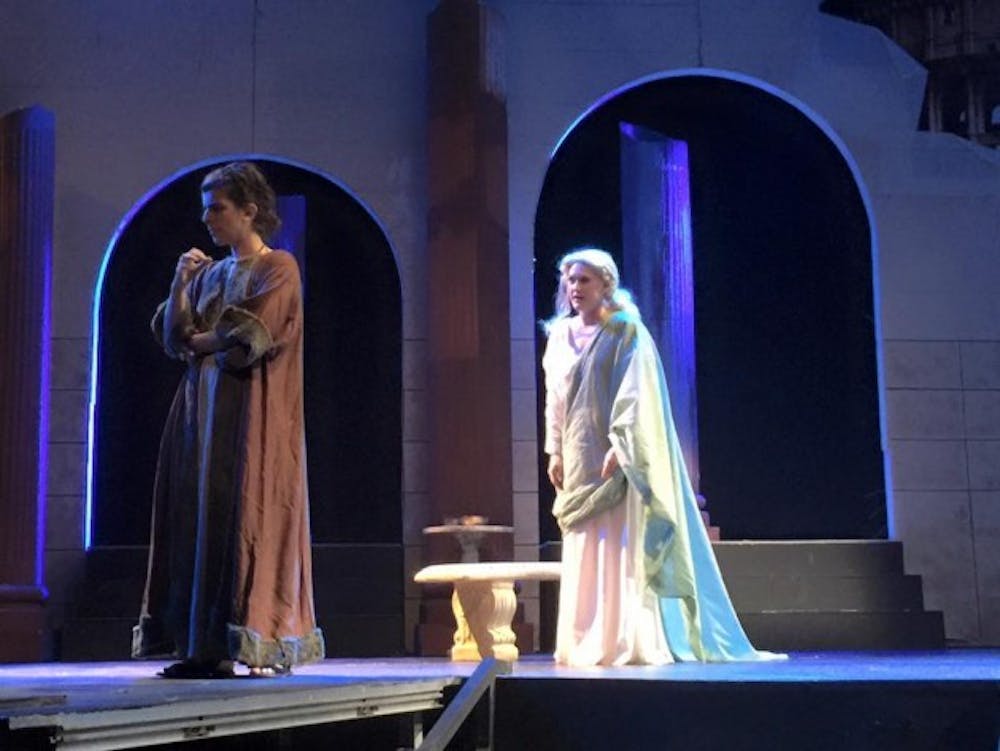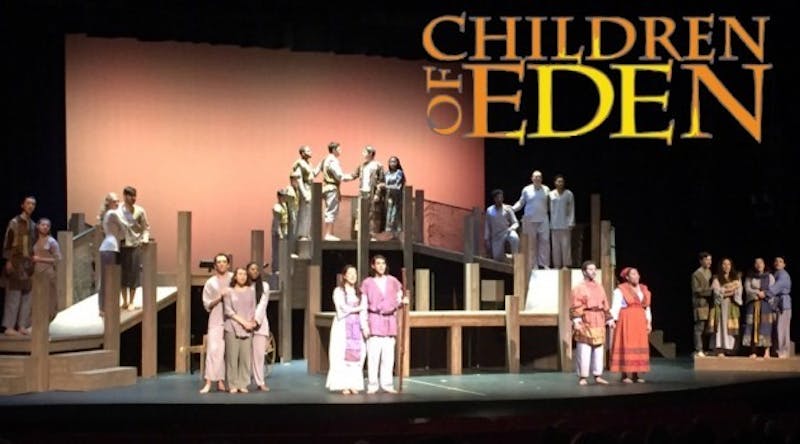On Friday, February 19, 2016, from 10 p.m. to 11 p.m., attendees filed into Wilkins Theatre to attend the first showing of Julius Caesar. This opening night was immediately followed by a reception with food and drinks in the lobby of Wilkins Theatre.
Attendees were able to mingle with cast and crew who worked so hard to put the show together. The play was directed by Ernest Wiggins, who along with a creative and supportive team put together an unforgettable show. Since that night, each following show has maintained the same incredible quality of performance. Bringing Shakespeare’s vision to life once again, the Wednesday night showing kept up the momentum.
The show is one of many productions of Kean University Department of Theatre. As an organization within an educational institution, the productions extend and supplement the intellectual life of the classroom. Not only are these shows beneficial to the education environment, but also the overall community. These performances allow for affordable access to the arts for New Jersey residents and students of all ages. Beyond that, it creates a space that promotes community and university interaction. The overall mission of the Department of Theatre is to educate, entertain and challenge audiences…and it does so each time it opens a curtain.
Wiggins states, “Julius Caesar is very contemporary…there’s something about that that has a connection to today.”
The play follows the life of a man, and his rise and fall to power. Caesar was a beloved and esteemed ruler of his kingdom. Many of his followers, whom he also considered his friends, were secretly envious and plotting against him. The play charts the conspiracy to murder Caesar and the following events. Entwined within the story are tales of relationships, power struggles, selfish motives, the vacillating loyalty of a community, and many many deaths. Each of these distinct aspects added their own individual element of truth and palpability to the play.
Shakespeare is a revered author, whose works extend far beyond his field. For one thing the writing of Shakespeare uses a rich dialect unique to his time that has become more or less a foreign language today.
Wiggins explains why this in itself is so important, “People get to listen to language that’s never been used before. For many, it may be the first time they ever go to Shakespeare or hear it. All of a sudden you have to sit and listen and say what’s so important about this.”
He is very deliberate in his writing, taking careful consideration of the details. His plays are often multifaceted and complex, featuring various themes and grandiose lessons. His writing is dramatic in a way that makes it irrefutably profound. It creates a drastic experience for the audience where it will undeniably resonate. He deals very much in tragedy but also in love, family, balance and truth. For almost all of his writings, the aspects of the play are timeless things that humans have, and will, face throughout history. He creates very powerful, proactive, and poignant pieces; in their entirety, his works are inescapably intense.
Wiggins aptly states, “…it [Julius Caesar] tells us about what it means to be alive or what it means to be a human being”
The story of Caesar is largely political, centered on the intricate nature of Roman politics. People find structure in society through organization, much of which is political. Through politics, power is distributed and order is created. Almost all of what goes on in society is related to or affected by it; it is a pervasive concept that influences the lives of so many over long periods of time. Contemporarily, where individuals are as a society, their political situation is about to incur tremendous change. Being cognizant, informed and involved is critical. It allows people a small hand in what determinations are made and how they are asserting themselves as individuals within a community. Being politically uninvolved or apathetic is in essence allowing others to make those decisions for a person, decisions which impact him or her in small ways and large ways every day.Julius Caesar has within many political lessons from trust, danger, and hard work to envy, deceit and betrayal.
In college, students are going through so many defining instances. These times, as trivial and fleeting as they may seem, are very significant in that they are forging the core character of who students are and will be. While students will come across many other instances wherein they are substantially impacted, the duration of a collegiate experience is one of extensive growth and change. With that in mind, college is a prime opportunity to develop an understanding of politics. There is no better time to take some political stands, and learn how others experience and view it.
Wiggins states, “What people get out of seeing it is a different way of looking at reality.”
Plays, as an art form, offer a very palpable experience. Also each performance is inimitable, despite being the same show and script; the moments are distinct and individual. There is a raw intensity in a human performance conveying a lesson, emotion or story. Plays, like most art, can capture almost any theme from friendship to power to gender to love to manipulation and everything in between. All art has an indescribable ability to capture someone’s attention entirely and demand him or her to commit some degree of reverence to it. Plays in particular have a way of captivating the audience and reminding them of the fleeting nature of a single moment.
The play was a wonderful experience and opportunity for students to learn the importance of politics and the value of art. As Shakespeare would say, “Experience is the teacher of all things,” and the performance was no exception. The play continued to show until the 27 of February.






